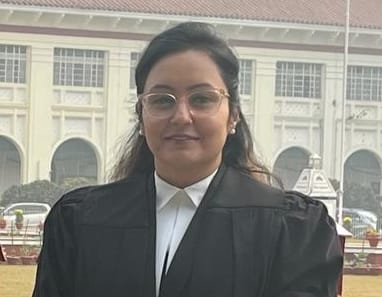Prachi Pallavi
We witnessed the consecration ceremony of the Ram Mandir at Ayodhya on 22nd January 2024. The birthplace, Ayodhya of Lord Ram, the human incarnation of Lord Vishnu finds mention in the Brihad-Dharmottara Purana as one of the seven holiest cities in the Country. As the nation celebrates the arrival of ‘Ram Lalla’, the child form of Lord Ram at its birthplace, it is of equal importance to retrospect the historic ‘Ayodhya title dispute’ which made the inauguration of the Ram Mandir a reality.
On 9th November 2019, the Hon’ble Apex Court in M Siddiq (D) Thr Lrs Versus Mahant Suresh Das & Ors (Civil Appeal Nos 10866-10867 of 2010) along with analogous appeals, directed formulation of a scheme by the Central Government for setting up of a trust and the disputed property would be handed over to this trust which also had the connected responsibility to construct the Ram Mandir. Further, the claim of Nirmohi Akhara as Shebait was rejected, however, given their historical presence, direction was given for assigning them an appropriate role in the management of the trust. A direction was given to the Central Government or the State Government to allot a suitable plot measuring five (5) acres to the Sunni Waqf Board for the construction of a mosque.
To arrive at the aforesaid conclusion, there were primary issues that had to be adjudicated upon to put a quietus on the disputed property. Firstly, it had to be decided whether there was an existence of a Hindu temple at the disputed site. Secondly, whether the temple in question was demolished by Babur or at his behest for the construction of the Babri Masjid? Thirdly, whether the mosque was constructed on the remains of and by using the materials of the temple?
The short facts of the case are that the Hindu community claimed the disputed property as the birthplace of Lord Ram and the Muslim community claimed it as the site of the Babri Masjid which was built by Babur, the first Mughal Emperor. In litigation before the Hon’ble High Court, it was decided that the Hindu and Muslim parties were joint holders of the disputed premises. Each of the parties, the Hindus, the Muslims, and the Nirmohi Akhara was granted one-third of the disputed property. The Nirmohi Akhara was granted a one-third share in the property on the ground that they claimed to be in charge and management of the structure at the disputed site.
Thereafter, when the matter was placed before the Hon’ble Apex Court, on the issue of whether a temple existed at the disputed site, the report of the Archaeological Survey of India (ASI) confirmed that the mosque in dispute was constructed upon the foundation of a pre-existing structure and the excavation revealed the existence of a circular shrine together with a Makara pranala which indicated Hindu worship.
The next question arises, as to who demolished the existing temple. In this aspect, there was no evidence available before the Hon’ble Apex Court either on the cause of the destruction of the temple or whether the reason for the demolition of the temple was the construction of the mosque.
Finally, on the issue of title to the immovable property it was held by the Hon’ble Apex Court that ‘title’ in a civil trial is decided on settled legal principles and evidence and not based on faith or belief. Upon application of the balance of probabilities, it was concluded that there was clear evidence to indicate unimpeded possession and continued worship by the Hindus in the outer courtyard, and about the inner courtyard, the Muslims did not offer any evidence of possession.
Therefore, there was clear and cogent evidence that pointed to the existence of a temple that was demolished and by whom it was demolished, could not be ascertained but a mosque was constructed upon the demolition of that pre-existing temple. Though the Hindus had succeeded in establishing their possessory claim on the disputed property than the evidence cited by the Muslims, the Hon’ble Apex Court in the exercise of its power under Article 142 of the Constitution, reasoning that the Muslims did not abandon the mosque, they were dispossessed and the mosque was destroyed, directed for allotment of the land for construction of the mosque. The decision of the Hon’ble Apex Court crystalizes and reaffirms our faith in our Court in upholding the principles of justice, equity good conscience, most importantly, equality of religious belief. The wrong cannot be perpetuated but if a wrong is suffered then the same shall be remedied.
(Writer is Advocate in Patna High Court )


